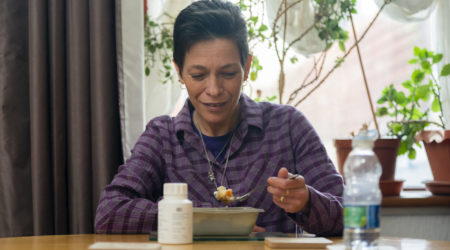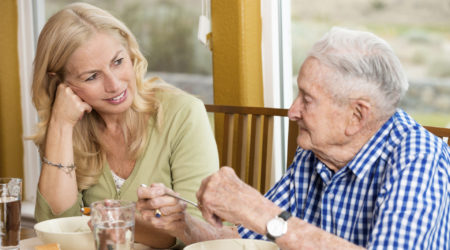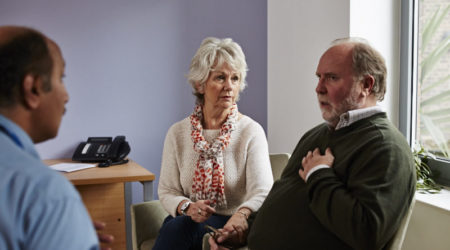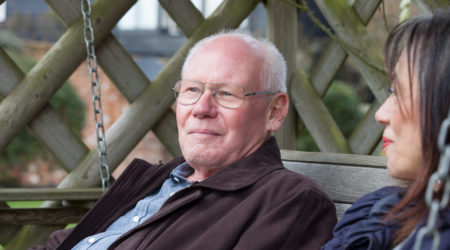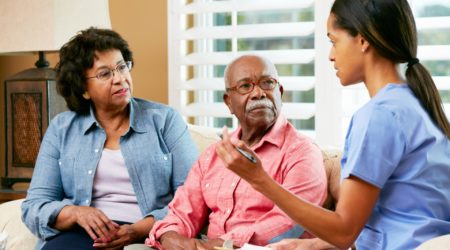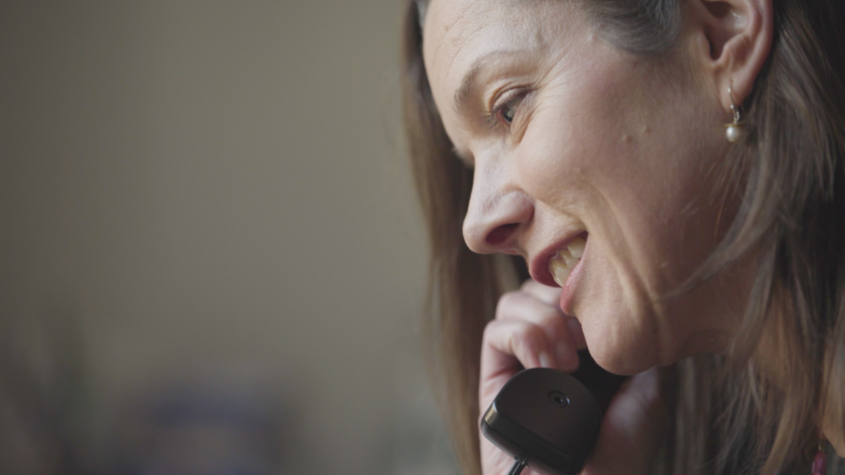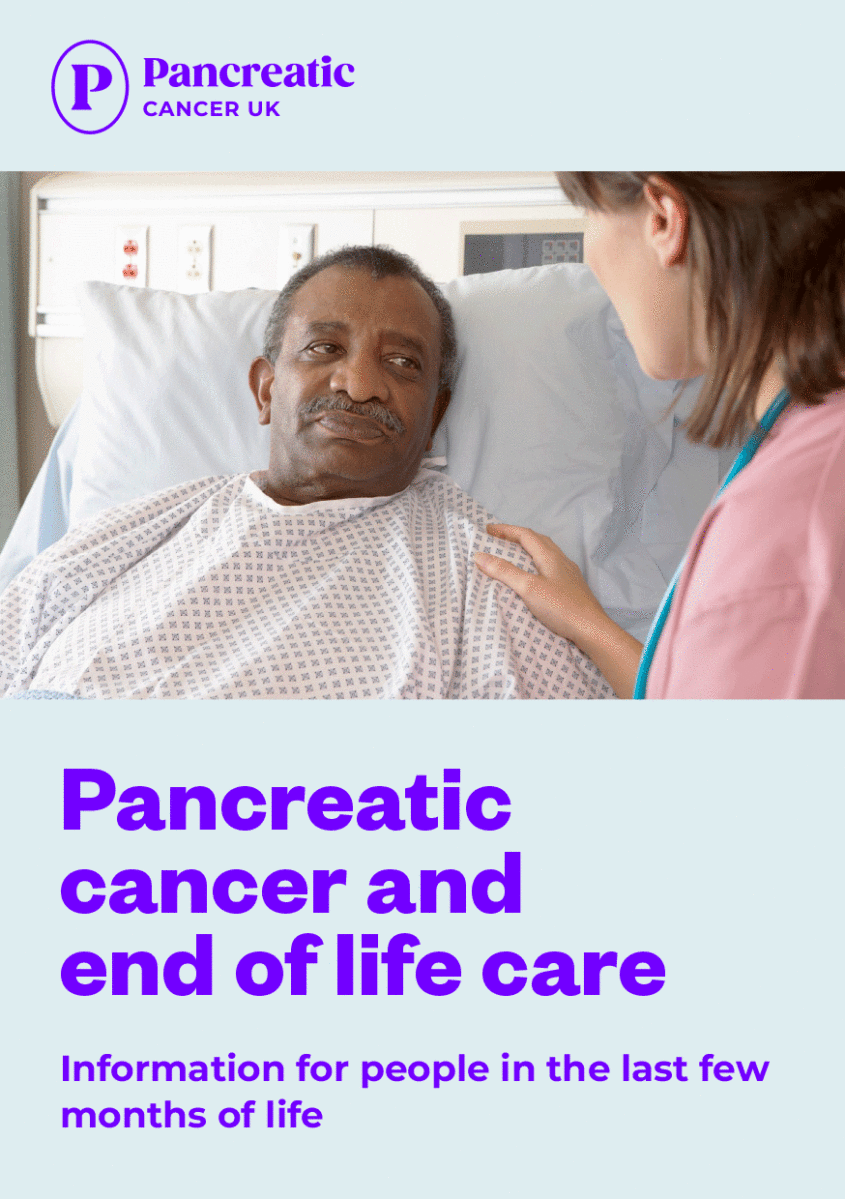Symptoms towards the end of life can include pain, fatigue (extreme tiredness), sickness, weight loss and bowel problems. Not everyone will get all of the symptoms we’ve included in this section.
What can I do?
Speak to your doctor or nurse about any symptoms, including new symptoms or if any symptoms get worse. It’s important to tell them about:
- any new pain, including back or neck pain
- numbness in your arms, legs or around your bottom
- problems controlling when you poo or pee (incontinence)
- breathlessness
- swelling and pain in your leg
- swelling in your tummy
- jaundice
- feeling more thirsty than usual, and weeing more
- being sick.
Ask them to review your symptoms. They will work out the best way to manage your symptoms and make sure you are as comfortable as possible.
If you have any questions about symptoms you can talk to our specialist nurses on our free Support Line.




